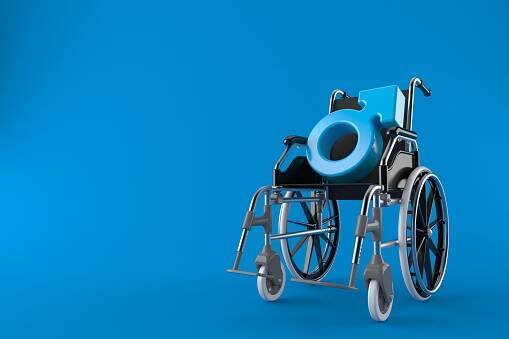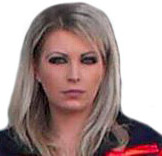- urologia.sk - Aging man and andropause
- cpzp.cz - Andropause (male transition)
Menopause in men. A joke or reality? What is andropause (+ symptoms)

Are you suffering from hot flashes, excessive sweating, mood disorders, reduced physical or sexual performance? Maybe you're going through a more complicated period of hormonal changes. For women, this period is called menopause - and it's a well-known term. But how are men dealing with the transition?
Article content
Menopause in men and andropause?
What is the connection between these terms?
How is it manifested?
What is the treatment?
It's not just the flushes and jitters... Their duration over a period of time...
With increasing age, the human body, whether female or male, has to cope with a lot of changes related to the natural aging process.
They are the result of programmed processes, but also of accidental events and the natural "wear and tear" of the organism and its cells.
Not only the overall appearance of a person changes, but also some internal processes. Management changes in the human body take place at the level of the nervous system, the immune and endocrine systems.
The most striking and also directly related to the transition are the endocrine or hormonal changes. They cause certain hormone concentrations in the body to decrease, increase or remain unchanged. These fluctuations result in not only organ but also functional changes.
Female menopause and male andropause are caused by aging
Interesting:
The process of aging and death as an integral part of life has been known to humans since time immemorial.
European alchemists even spent a lot of time in the Middle Ages searching for the so-called "philosopher's stone".
It was not a real rock, but a mythical substance that had the power to cure all diseases, slow down aging and prolong life. In the past, many unsuccessful efforts were also made in the pursuit of a mystical property - immortality.
Menopause in women is a well-known phenomenon. Perhaps it is because women like to talk about their problems, complain and discuss them among themselves. Men tend to be more reserved and keep their private lives to themselves. But that doesn't mean they are not worried.
The transitional period in men is called andropause, a period characterised by hormonal changes and the associated symptoms and difficulties that afflict the male sex. In some respects, the symptomatology of both sexes is identical, but because of their differences, in other respects they do not coincide.
Andropause is not equivalent to female menopause
Although andropause is often mentioned in connection with menopause in women, it is not its male equivalent.
Both menopause and andropause are periods of hormonal changes caused by the ageing process. However, in women there are markedly reduced hormone concentrations over a short period of time, whereas in men it is a gradual and longer-term process. Despite the reduction in male hormones, they are so numerous that they still predominate.
Andropause is the collective name for the so-called male climacterium (lat. climacterium virile). However, these terms do not occur much in foreign literature, rather the preferred names are ADAM or PADAM. These are abbreviations that accurately refer to the cause of their occurrence - that is, the reduced concentration or complete absence of androgens.
- ADAM ⇒ androgen decline in aging male
- PADAM ⇒ partial androgen deficiency of aging man
What are androgens?
Androgens, also called testoids, are natural but also synthetic substances classified as hormones with virilizing effects. They bind to androgen receptors and are directly responsible for the stimulation and development of male sex characteristics.
The most important representative of androgens is testosterone, a hormone affecting the development of primary and secondary male sex characteristics (musculature, pubic hair, voice mutation).
When does andropause occur?
The level of androgens, specifically testosterone, begins to decline already around the age of 30. The decline is minimal and therefore most men are unaware of it. In the following decades, it decreases on average by another 10%.
The significant decline is at the age of 50, when the initial problems begin to appear. At the age of 75 and over, the level of total testosterone is less than 11 nmol/l and free testosterone is less than 220 pmol/l.
The decline and the exact testosterone levels are individual for each man, but sooner or later they will occur.
What happens to a man's body during the period of hormonal changes?
Decreased levels of androgens, especially testosterone, cause unpleasant changes in the male body. These changes occur on average around the age of 50 and significantly affect its quality. They affect several areas. Which are they?
Vegetative symptomatology
It starts with unwarranted irritability and dissatisfaction. The man doesn't know what's going on. He just doesn't feel comfortable in his own skin. He feels that something is wrong, that something is wrong with him.
- He's having trouble falling asleep, waking up repeatedly at night.
- Hesweats excessively in episodes, especially during the night, and experiences uncomfortable hot flashes.
- The next day after a sleepless night he is exhausted and easily fatigued.
- Increasingly, palpitations, dizziness and sometimes a feeling of fainting occur. They are accompanied by nausea, less often vomiting.
Virility disorder - loss of virility
Virility disorders include anything that involves the loss or decline of male sexual characteristics.
- This includes, for example, thinning or loss of pubic hair in the genital area. A similar phenomenon can be seen in the hair, which falls excessively and baldness appears.
- In addition, there is a marked loss of muscle mass, which used to distinguish men from women. Instead of well-developed biceps, the muscles are much flabbier, the skin saggier and less elastic. The bricks on the abdomen or the slim waist are replaced by abdominal obesity, as testosterone also helps to burn fat.
- It's not just muscles that cause lower vitality and reduced physical performance. A man can no longer cope with strenuous activities as he used to. He gets tired faster.
- There are also changes in the shape of the male genitals. But these changes are so subtle that almost no one knows about them.
Interesting:
In some more severe cases, a marked lack of testosterone can cause the development of female characteristics, such as breast growth - gynecomastia.
Sexuality disorder - when a man stops being a man
Sexuality disorders are a big problem for the male sex. One could even say that, as far as andropause is concerned, they are the trickiest. They significantly affect their previous sexual activity. They are caused by erectile dysfunction, when a man wants to but can't, or libido, when he simply has no desire.
- This includes a reduction in libido, i.e. the appetite for sex, which paradoxically increases in menopausal women.
- There are also disturbances in the quality of the erection, but also in the onset of the effect. This is manifested by the lack of erection during the act, delayed erection or erection with rapid flaccidity of the penis.
- This contributes not only to failure to reach orgasm, but also to ejaculation disorders, weak ejaculation (seminal discharge), or reduced ejaculate volume.
TIP:
How lifestyle increases the risk of impotence
Promoting and improving erections - how to do it?
Mood and cognitive impairment
It is not only women who are entitled to mood changes. Men can also be "uncomfortable" during times of transition. They are not only affected by mood changes, but also by other similar conditions.
- For men in transition, irritability vs. lethargy is typical. It is very individual which men will show the first or the second variant. Usually, the previous character traits and personality of the man play a role. These two different psychological states can alternate with each other based on the current state of mind of the individual.
- Typical is the constant nervousness, dissatisfaction with everything and everyone. At a certain moment everything is wrong, subjectively nothing is going well. A dissatisfied person who is not going well in his/her own perception has at the same time a lack of self-confidence and other motivation.
- Anxiety and depression, and the resulting fear, are no exception. On average, however, depression is mostly suffered by women, but it is also common in men in transition.
- Cognitive impairments include memory disorders, which are associated with transition. However, they also occur in older age regardless of andropause.
How to counteract transition-related problems?
Treatment of andropause is either causal or symptomatic.
By causal therapy, we mean the replacement or supplementation of androgens in synthetic form. This is testosterone replacement. This achieves an increase in their concentration in the body and suppresses the symptoms arising due to their deficiency.
Interesting: according to statistics, up to 350,000 men are currently being treated with testosterone preparations in Europe alone.
Symptomatological treatment is highly individualised and includes a wide range of drugs that suppress the most prominent symptoms of andropause.
This therapy also includes drugs that suppress the psychological symptoms associated with this period. Most often, it is a treatment for depression or anxiety disorders.
Interesting resources










